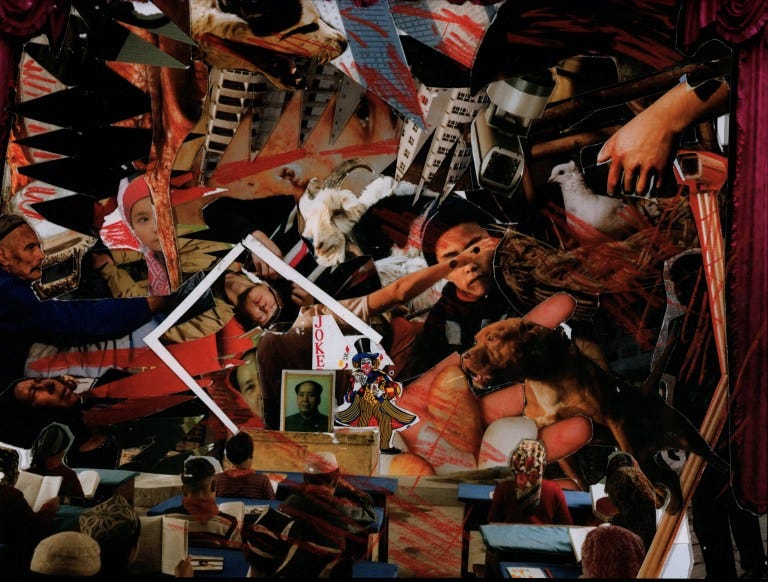
Credit: Carolyn Drake
Hello from the greater Sea-Tac area!
Andy and Tammy here with a bonus episode, interviewing Darren Byler, a postdoctoral researcher at the University of Colorado and an expert on the Uyghur people, a Muslim community in the Xinjiang Uyghur Autonomous Region in Northwest China.
Darren’s years of anthropological research in Xinjiang will be published in a forthcoming book titled Terror Capitalism. Until then, you can find his work at SupChina, Made in China journal, and his own site, “art of life in Chinese Central Asia.” He has also written specially about surveillance technologies in Xinjiang.
5:30 - Is it true that right-wing voices dominate the international conversation about the Uyghurs of Xinjiang? Why isn’t the international left more vocal?
9:50 – What is Xinjiang? Who are the Uyghurs? And how has the relationship between Uyghurs and Han (ethnic Chinese) people changed from the 1950s to the present? In recent decades, Xinjiang has become a source for energy resources, the cotton in our clothing, and the tomatoes in our food.
We recount the path from “opening up the west” (1990s) to “the people’s war on terror” (2000-10s) to the most recent “reeducation camps.”
21:05 – Darren argues that the moralistic paradigm of “cultural difference” and “ethnic genocide” are inadequate. He explains why we need a broader analysis of the social forces producing violence, exploitation, and state repression. Hint: capitalism?
Also, how has China appropriated the US’s rhetoric of “war on terror” to racialize the Muslim Uyghurs? Aka “I learned it by watching you, Dad!”
Referenced: a new report on Uyghur labor in export-oriented factories in China (Australian Strategic Policy Institute)
56:50 – What’s a good leftist to do? Is it okay to back right-wingers who call China morally evil? What are potential avenues for international solidarity (what about the Uyghur diaspora? the Chinese diaspora?)?
Also, Darren cites recommended reading on the region and tells us what traps to avoid — and also defends journalists at The New York Times (the ones who wrote this) against Andy’s snobbish dismissal of reportage!
Outro: an excerpt from “Uchrashqanda,” by the Uyghur singer and dutar player Abdurehim Heyit, who was imprisoned by the Chinese authorities and has not been heard from since last year.
Links:
Camp Album project: a multimedia collection by Xinjiang diaspora
The Xinjiang Documentation Project at the University of British Columbia
From the same site, Chinese translations of English publications on Xinjiang
Historian David Brophy’s modern account of the region







Share this post